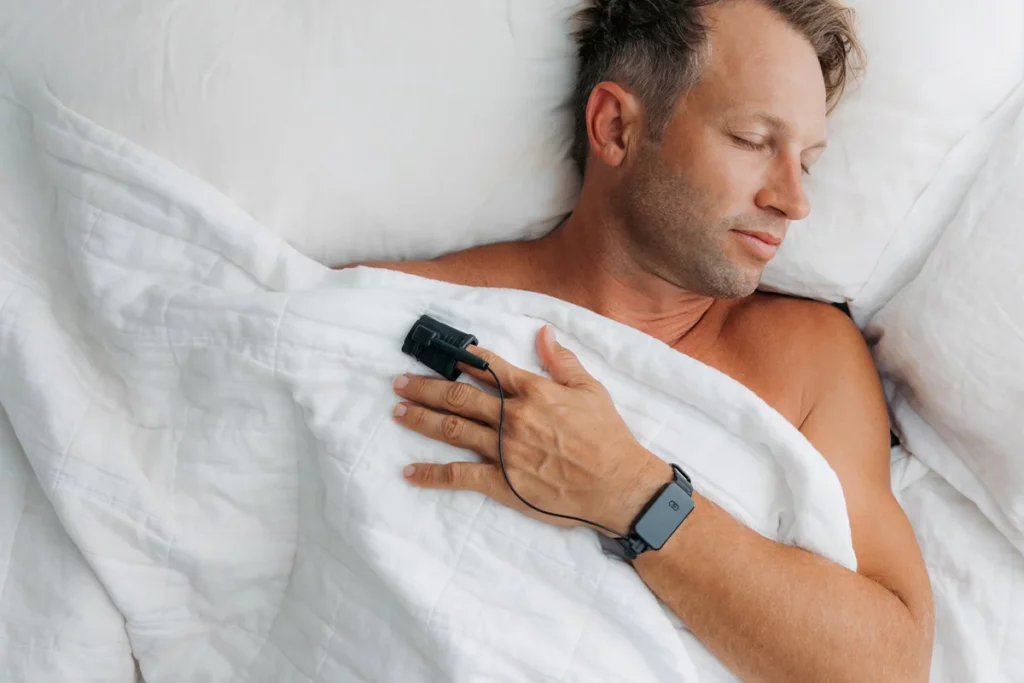In recent years, the importance of sleep has gained significant recognition, with increasing numbers of individuals seeking solutions for sleep-related issues. For those residing in Sydney, a home sleep study offers a convenient and effective way to assess potential sleep disorders without the need for a hospital visit. This article delves into the various aspects of home sleep studies, including their benefits, procedures, and the types of sleep disorders they can help diagnose.
Understanding Sleep Disorders
Sleep disorders encompass a wide range of conditions that affect an individual’s ability to sleep well on a regular basis. These disorders can lead to a myriad of health issues, including fatigue, mood disturbances, and cognitive impairments. Common sleep disorders include insomnia, sleep apnoea, restless legs syndrome, and narcolepsy.

Home sleep study Sydney represent a significant advancement in the diagnosis and management of sleep disorders, offering a convenient, cost-effective, and comfortable alternative to traditional in-lab studies. With the ability to assess various sleep parameters in a familiar environment, these studies provide valuable insights into individual sleep patterns and potential disorders.
Insomnia is characterised by difficulty falling asleep or staying asleep, while sleep apnoea involves interrupted breathing during sleep, often leading to excessive daytime sleepiness. Restless legs syndrome causes uncomfortable sensations in the legs, compelling individuals to move them, which can disrupt sleep. Narcolepsy, on the other hand, is a neurological disorder that affects the brain’s ability to regulate sleep-wake cycles.
Understanding these disorders is crucial for individuals experiencing sleep difficulties, as early diagnosis and treatment can significantly improve quality of life.
The Benefits of Home Sleep Studies
Home sleep studies have gained popularity due to their numerous advantages over traditional in-lab sleep studies. One of the primary benefits is convenience; individuals can undergo testing in the comfort of their own homes, eliminating the stress and discomfort often associated with hospital settings.
Additionally, home sleep studies are typically more cost-effective than in-lab studies. Patients can save on travel expenses and the overall cost of the procedure, making it a more accessible option for many. Furthermore, the ability to sleep in one’s own bed can lead to more accurate results, as individuals are likely to experience their typical sleep patterns.
Another significant advantage is the speed of results. Home sleep studies often provide quicker access to diagnosis and treatment plans, allowing patients to begin addressing their sleep issues sooner.
Read more at: Sleep Testing Sydney What It Involves and How to Get Started
How Does a Home Sleep Study Work?
The process of a home sleep study is relatively straightforward and involves several key steps. Initially, individuals will consult with a healthcare provider, who will evaluate their symptoms and determine if a home sleep study is appropriate. This consultation may involve a physical examination and a discussion of the patient’s medical history.
Once a home sleep study is deemed necessary, the patient will receive a portable monitoring device, which is designed to be user-friendly. The device typically includes sensors that measure various parameters, such as airflow, blood oxygen levels, heart rate, and movement during sleep.
Patients are instructed on how to set up the device, which usually involves placing sensors on the body and wearing a nasal cannula or mask. After the setup, individuals will go about their normal evening routines and sleep as they typically would. The device will record data throughout the night, which will later be analysed by a sleep specialist. Find more about analysed on https://www.interface.edu.pk/
Preparing for Your Home Sleep Study
Preparation for a home sleep study is essential to ensure accurate results. Patients should follow specific guidelines provided by their healthcare provider, which may include avoiding caffeine and alcohol on the night of the study, as these substances can interfere with sleep patterns.
It is also advisable to maintain a regular sleep schedule in the days leading up to the study. This consistency can help ensure that the individual’s sleep patterns are reflective of their typical behaviour, leading to more reliable data.
Finally, patients should create a conducive sleep environment by ensuring their bedroom is dark, quiet, and at a comfortable temperature. These factors can significantly influence sleep quality and the data collected during the study.
Interpreting the Results
After the home sleep study is completed, the recorded data is sent to a sleep specialist for analysis. The specialist will review the information collected, looking for patterns that indicate the presence of a sleep disorder.
Results may reveal issues such as apnoeic events, which are pauses in breathing during sleep, or significant drops in blood oxygen levels. Based on the findings, the specialist will provide a diagnosis and recommend appropriate treatment options.
Patients will typically receive a follow-up consultation to discuss the results and any necessary lifestyle changes or interventions. This may include recommendations for continuous positive airway pressure (CPAP) therapy for sleep apnoea, cognitive behavioural therapy for insomnia, or lifestyle modifications to improve sleep hygiene.
Common Treatments for Sleep Disorders
Treatment options for sleep disorders vary depending on the specific condition diagnosed. For sleep apnoea, CPAP therapy is a common and effective treatment that involves wearing a mask connected to a machine that delivers a continuous stream of air to keep the airways open during sleep.
For individuals suffering from insomnia, cognitive behavioural therapy (CBT) is often recommended. This therapy focuses on changing negative thought patterns and behaviours related to sleep, helping individuals develop healthier sleep habits.
In some cases, medication may be prescribed to help manage symptoms. However, this is typically considered a last resort, as non-pharmacological treatments are preferred for long-term management of sleep disorders.
Who Should Consider a Home Sleep Study?
A home sleep study may be suitable for anyone experiencing symptoms of a sleep disorder, particularly those who have difficulty accessing traditional sleep clinics or prefer the convenience of testing at home. Common indicators for a home sleep study include excessive daytime sleepiness, loud snoring, observed pauses in breathing during sleep, and difficulty falling or staying asleep.
Individuals with a history of cardiovascular issues, obesity, or other health conditions that may exacerbate sleep problems should also consider undergoing a home sleep study. Early diagnosis and intervention can help mitigate the risks associated with untreated sleep disorders. Click here to find more about risks.
Moreover, those who have previously undergone in-lab sleep studies but found the experience uncomfortable may find a home sleep study to be a more appealing alternative.
Conclusion

For residents of Sydney experiencing sleep difficulties, consulting with a healthcare provider about the possibility of a home sleep study could be a crucial step towards achieving better sleep health. By understanding the nature of sleep disorders and the benefits of home sleep studies, individuals can take proactive measures to improve their overall well-being.

